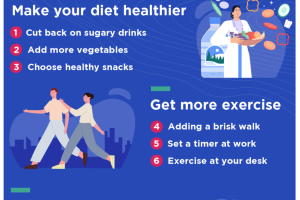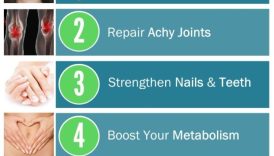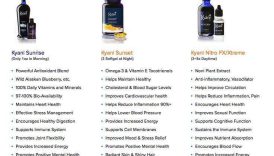10 Simple Ways to Make Healthy Living Choices Every Day

Maintaining a healthy lifestyle is not just a trend; it’s a way to enhance overall well-being and longevity. Imagine waking up each morning feeling energetic and ready to conquer the day. This is possible when one embraces the principles of healthy living.
- 10 Simple Ways to Make Healthy Living Choices Every Day
- Why Healthy Living Matters
- Importance of Healthy Living
- Benefits of Healthy Living
- Maintain a Balanced Diet
- Include a Variety of Nutrient-rich Foods
- Limit Processed Foods and Sugary Beverages
- Stay Hydrated
- Why Hydration Matters
- Tips for Staying Hydrated
- Prioritize Regular Exercise
- Create a Consistent Workout Routine
- Find Activities You Enjoy
- Get Enough Sleep
- The Importance of Quality Sleep
- Tips for Improving Sleep Hygiene
- Practice Mindfulness and Stress Management
- The Power of Mindfulness
- Effective Stress Management Techniques
- Limit Alcohol and Avoid Smoking
- The Risks of Excessive Alcohol Consumption
- The Dangers of Smoking
- Improve Posture and Ergonomics
- The Importance of Good Posture
- Ergonomic Tips for a Healthier Workspace
- Stay Connected with Loved Ones
- Why Social Connections Matter
- Ways to Stay Connected
- Discover Healthy Hobbies
- Benefits of Healthy Hobbies
- Ideas for Healthy Hobbies
- XII. Set Realistic Goals and Celebrate Progress
- Why Realistic Goals Matter
- Celebrate Your Progress
- XIII. Monitor Your Health Regularly
- The Benefits of Regular Health Monitoring
- How to Monitor Your Health Effectively
- XIV. Incorporate Self-care Practices
- The Importance of Self-care
- Effective Self-care Practices
- XV. Conclusion
- Embrace the Journey
Why Healthy Living Matters
Health is often taken for granted, but it plays a crucial role in every aspect of life. A few key reasons why healthy living is essential include:
- Physical Health: Reduces the risk of chronic diseases.
- Mental Clarity: Improves focus and productivity.
- Emotional Balance: Fosters a positive mindset.
Incorporating healthy habits can transform not just the individual but also their loved ones, creating a ripple effect of wellness.
Importance of Healthy Living
Building on the idea that health is a foundational element of life, it’s essential to understand why healthy living is paramount. When one prioritizes wellness, not only do they benefit personally, but they also help inspire those around them.
Benefits of Healthy Living
Healthy living contributes significantly to:
- Better Quality of Life: More energy and vitality.
- Longevity: Studies show that healthy habits can extend life expectancy.
- Improved Relationships: A healthier mindset often leads to stronger connections with others.
For instance, after starting a regular exercise routine, many report feeling more connected and engaged in social activities. Embracing these habits creates a positive ripple effect, enhancing not just individual well-being but also fostering a supportive community.
Maintain a Balanced Diet
With a solid understanding of the importance of healthy living, the next step is to focus on maintaining a balanced diet. This is not just about avoiding unhealthy foods but embracing a diverse array of nutritious options that nourish the body and mind.
Include a Variety of Nutrient-rich Foods
Incorporating a mix of different food groups can lead to optimal health. Consider including:
- Fruits and Vegetables: Aim for at least five servings a day. They provide essential vitamins and antioxidants.
- Whole Grains: Such as brown rice and whole wheat bread, which offer fiber and keep you full longer.
- Lean Proteins: Options like chicken, fish, and legumes support muscle growth and repair.
Limit Processed Foods and Sugary Beverages
While enjoying treats occasionally is fine, it’s crucial to limit processed foods and sugary drinks. These items can lead to weight gain and other health issues. Think about:
- Reading Labels: Be mindful of added sugars and artificial ingredients.
- Home Cooking: This allows for healthier choices, ensuring you know exactly what’s on your plate.
For example, swapping out a soda for water not only cuts calories but also keeps you hydrated. Making conscious food choices can significantly impact overall health, steering one toward a more balanced lifestyle.
Stay Hydrated
Transitioning from the importance of a balanced diet, hydration is another cornerstone of healthy living that’s often overlooked. Drinking enough water can significantly enhance both physical health and mental clarity.
Why Hydration Matters
Water plays a vital role in many bodily functions, including:
- Temperature Regulation: Helps the body maintain a stable temperature, especially during exercise.
- Nutrient Transport: Aids in delivering essential nutrients to cells while flushing out toxins.
- Cognitive Function: Even mild dehydration can lead to decreased focus and fatigue.
Tips for Staying Hydrated
To ensure adequate hydration, consider the following:
- Carry a Water Bottle: Keeping water within reach serves as a constant reminder to drink.
- Set Daily Goals: Aim for at least eight 8-ounce glasses, or use apps that remind you to hydrate.
- Add Flavor: If plain water is boring, infuse it with fruits or herbs like lemon or mint for a refreshing twist.
For instance, during a particularly busy week, one might find themselves neglecting hydration, only to feel sluggish and less productive. Making a conscious effort to drink more water can combat that fatigue, making a noticeable difference in daily performance.
Prioritize Regular Exercise
Having established the significance of staying hydrated, it’s time to delve into the realm of physical activity. Regular exercise is crucial for maintaining both physical and mental health, and it’s essential to make it a priority in daily life.
Create a Consistent Workout Routine
Consistency is key when it comes to seeing the benefits of exercise. Consider these tips for building a routine:
- Schedule It: Treat workouts like important appointments to ensure they are not overlooked.
- Set Realistic Goals: Aim for at least 150 minutes of moderate aerobic activity each week.
For instance, Mark, a busy professional, found success in scheduling his workouts early in the morning, leading to greater adherence to his exercise routine.
Find Activities You Enjoy
Engagement in physical activities you love makes all the difference. Explore options such as:
- Group Classes: These can provide motivation and a sense of community.
- Outdoor Activities: Hiking, biking, or playing sports can make exercise feel less like a chore.
By discovering enjoyable activities, individuals are likely to stick with their routines longer. For example, Sarah, who initially dreaded gym sessions, found joy in dancing classes, making exercise a fun part of her day rather than a task. Ultimately, finding a personalized approach to fitness can turn exercise into a fulfilling and rewarding experience.
Get Enough Sleep
As we transition from prioritizing regular exercise, another vital cornerstone of healthy living is getting enough sleep. Sleep is often underrated, yet it is essential for recovery, mental health, and overall well-being.
The Importance of Quality Sleep
Adequate sleep allows the body and mind to rejuvenate, leading to numerous benefits such as:
- Enhanced Concentration: Good sleep improves cognitive function and memory retention.
- Better Mood Regulation: Adequate rest reduces irritability and stress, promoting emotional balance.
- Physical Recovery: During sleep, the body repairs itself, aiding in muscle growth and immune function.
Tips for Improving Sleep Hygiene
To cultivate better sleep habits, consider the following strategies:
- Establish a Sleep Schedule: Aim for 7-9 hours of sleep and try to go to bed and wake up at the same time daily.
- Create a Relaxing Bedtime Routine: Engaging in calming activities, like reading or meditation, can signal your body that it’s time to wind down.
For example, after struggling with restless nights, Jane started a cozy bedtime ritual that included herbal tea and soft music, transforming her sleep quality dramatically. Valuing and prioritizing sleep can lead to a more energized and productive daily life, making it an integral part of maintaining a healthy lifestyle.
Practice Mindfulness and Stress Management
After exploring the significance of a good night’s sleep, the next step in our journey toward healthy living is incorporating mindfulness and effective stress management techniques. In today’s fast-paced world, it’s essential to cultivate practices that help center the mind and alleviate tension.
The Power of Mindfulness
Mindfulness involves being present in the moment, which can significantly reduce anxiety and improve overall mental health. Key benefits include:
- Increased Focus: Staying present enhances productivity and the quality of work.
- Enhanced Emotional Resilience: Mindfulness helps in managing negative emotions and improves responses to stress.
Effective Stress Management Techniques
To create a balanced life, implement some stress-reduction strategies:
- Meditation: Regular practice can calm the mind and improve emotional regulation.
- Breathing Exercises: Simple deep-breathing techniques can help ease tension during stressful moments.
For example, during a hectic week at work, Amy started taking a few minutes daily to meditate, finding that it drastically improved her ability to cope with stress. By weaving mindfulness into daily routines, individuals can cultivate a more peaceful and fulfilling life while navigating challenges with greater ease.
Limit Alcohol and Avoid Smoking
Following the exploration of mindfulness and stress management, it’s crucial to address the impact of lifestyle choices, particularly alcohol consumption and smoking. These habits can significantly affect overall health and well-being.
The Risks of Excessive Alcohol Consumption
While moderate drinking may be acceptable for some, excessive alcohol intake can lead to various health issues, including:
- Liver Damage: Heavy drinking can cause liver diseases like fatty liver and cirrhosis.
- Mental Health Concerns: Alcohol can exacerbate anxiety and depression.
The Dangers of Smoking
Smoking remains one of the leading causes of preventable diseases. Key reasons to avoid it include:
- Respiratory Problems: Smoking can lead to chronic bronchitis and lung cancer.
- Reduced Life Expectancy: Smokers often face a shorter lifespan compared to non-smokers.
For instance, when Tom decided to quit smoking after years of habit, he not only experienced improved breathing but also found himself with more energy and a positive outlook on life. By limiting alcohol consumption and avoiding smoking, individuals can enhance their health and reduce the risk of severe health problems, paving the way for a more vibrant lifestyle.
Improve Posture and Ergonomics
With the importance of lifestyle choices established, let’s turn our attention to the often-overlooked aspects of posture and ergonomics. Proper posture and ergonomics can dramatically influence both physical comfort and long-term health.
The Importance of Good Posture
Maintaining good posture is essential for several reasons:
- Reduced Pain: Proper alignment minimizes stress on muscles and joints, preventing discomfort.
- Enhanced Breathing: Good posture allows for better lung capacity and oxygen intake.
For instance, after years of slouching at her desk, Lisa noticed significant back pain. Once she began consciously straightening her back and adjusting her chair, her discomfort diminished considerably.
Ergonomic Tips for a Healthier Workspace
To enhance posture and ergonomics, consider these effective strategies:
- Adjust Your Chair: Ensure your chair supports the lower back and allows feet to rest flat on the floor.
- Screen Height: Position your computer screen at eye level to avoid neck strain.
- Take Breaks: Regularly stand, stretch, and move around to counteract prolonged sitting.
By focusing on posture and ergonomics, individuals can create a more comfortable and sustainable environment, leading to greater productivity and overall health.
Stay Connected with Loved Ones
Having explored the impact of posture and ergonomics, it’s essential to recognize the significance of social connections in promoting mental and emotional health. Staying connected with loved ones can play a pivotal role in overall well-being.
Why Social Connections Matter
Healthy relationships provide emotional support and help mitigate stress. Here are some key benefits:
- Improved Mental Health: Strong relationships can reduce feelings of loneliness and depression.
- Enhanced Happiness: Sharing experiences with loved ones boosts overall life satisfaction.
For example, after reconnecting with old friends, Anna found her mood lifted, reporting increased feelings of happiness and belonging.
Ways to Stay Connected
To nurture these relationships, consider the following strategies:
- Regular Check-ins: Schedule weekly calls or texts to stay in touch.
- Plan Activities Together: Whether it’s a coffee date or a group outing, spending quality time fosters deeper connections.
- Utilize Technology: Video calls and social media platforms can bridge the distance with loved ones, making communication effortless.
By prioritizing connections with family and friends, individuals can bolster their emotional resilience and foster a supportive network that enhances their journey toward a healthy lifestyle.
Discover Healthy Hobbies
Continuing from the importance of staying connected with loved ones, exploring healthy hobbies can further enrich one’s life and well-being. Engaging in enjoyable activities not only provides a creative outlet but also enhances mental and physical health.
Benefits of Healthy Hobbies
Hobbies can lead to numerous benefits, including:
- Stress Relief: Engaging in enjoyable activities can act as a great distraction from daily stressors.
- Skill Development: Trying new hobbies can introduce fresh skills and boost self-confidence.
- Social Opportunities: Many hobbies provide avenues to meet like-minded individuals, fostering new friendships.
For example, David picked up gardening as a hobby during the pandemic, which allowed him to connect with nature and also brought joy to his family as they enjoyed fresh produce together.
Ideas for Healthy Hobbies
To get started, consider these healthy hobby options:
- Outdoor Activities: Hiking, biking, or nature walks can be invigorating and promote physical fitness.
- Art and Craft: Painting, knitting, or DIY projects stimulate creativity and can be incredibly fulfilling.
- Cooking and Baking: Experimenting with healthy recipes not only nourishes the body but also encourages mindful eating.
By integrating healthy hobbies into daily life, individuals can enhance their well-being, reduce stress, and build a fulfilling lifestyle that fosters both joy and health.
XII. Set Realistic Goals and Celebrate Progress
Having discussed the value of discovering healthy hobbies, it’s essential to set realistic goals to guide your journey toward a healthier lifestyle. Goals provide direction, motivation, and a sense of accomplishment.
Why Realistic Goals Matter
Setting achievable goals can significantly affect one’s progress and retention of healthy habits. Key benefits include:
- Increased Motivation: Small wins foster confidence and encourage continued effort.
- Focused Effort: Broken-down objectives clarify action steps and enhance accountability.
For instance, when Maya aimed to walk 10,000 steps daily, she initially felt overwhelmed. By starting with a goal of 5,000 steps and gradually increasing her target, she found the progress more manageable and rewarding.
Celebrate Your Progress
Taking time to acknowledge achievements is vital for sustaining motivation. Here are ways to celebrate:
- Journaling: Record milestones and reflect on how far you’ve come.
- Reward Yourself: Treat yourself to something enjoyable, like a spa day or a new workout outfit.
- Share with Others: Let friends and family know about your successes; their encouragement can boost your morale.
By setting realistic goals and celebrating progress, individuals can create a fulfilling path toward a healthier lifestyle that allows them to appreciate their journey along the way.
XIII. Monitor Your Health Regularly
Building off the importance of setting realistic goals and celebrating progress, another key component of maintaining a healthier lifestyle is to monitor your health regularly. Keeping track of health metrics enables you to stay informed and make adjustments as needed.
The Benefits of Regular Health Monitoring
Monitoring your health provides insights into your well-being and can help you:
- Identify Trends: Spotting patterns in weight, exercise, or diet can help you make informed adjustments.
- Stay Accountable: Regular check-ins with yourself keep your health goals front and center.
- Catch Issues Early: Routine screenings can detect potential health concerns before they escalate.
For instance, after starting her fitness journey, Sara began tracking her daily food intake and exercise through an app. This practice not only kept her accountable but also revealed areas for improvement in her diet.
How to Monitor Your Health Effectively
To ensure you’re regularly tracking your health, consider these options:
- Wearable Fitness Trackers: Devices like smartwatches can monitor activity levels, heart rate, and sleep patterns.
- Health Journals: Maintain a daily log of your meals, physical activity, and how you feel.
- Routine Check-Ups: Schedule regular visits with your healthcare provider for comprehensive check-ups.
By keeping a close eye on your health, you can adjust your lifestyle as needed, ensuring that you remain on the path toward achieving your wellness goals.
XIV. Incorporate Self-care Practices
Following the discussion on the importance of regularly monitoring your health, it’s vital to highlight the significance of self-care practices. Self-care plays an essential role in maintaining both physical and mental well-being, allowing you to recharge and rejuvenate.
The Importance of Self-care
Engaging in self-care can enhance your quality of life by:
- Reducing Stress: Regular self-care sessions can alleviate the pressures of daily life.
- Boosting Mood: Taking time for yourself can increase feelings of happiness and fulfillment.
- Improving Focus: Self-care resets your mind, enabling better concentration and productivity.
For example, Scott, a busy entrepreneur, found that dedicating Sunday afternoons to personal time—reading, meditating, or enjoying nature—significantly improved his focus and creativity throughout the week.
Effective Self-care Practices
To incorporate self-care into your routine, consider trying:
- Mindfulness Activities: Practices like yoga or meditation can calm the mind and promote relaxation.
- Nature Walks: Spending time outdoors has been shown to boost mood and reduce anxiety.
- Creative Outlets: Engage in hobbies like painting, writing, or crafting to foster self-expression.
By embedding self-care practices into daily life, individuals can cultivate a healthier and more balanced lifestyle, ultimately enhancing overall well-being and resilience against stressors.
XV. Conclusion
As we wrap up our journey through the various elements of healthy living, it’s crucial to remember that adopting a holistic approach is the key to achieving and maintaining well-being. From monitoring your health regularly to incorporating self-care practices, each aspect contributes to a fulfilling lifestyle.
Embrace the Journey
Healthy living isn’t a destination but an ongoing journey filled with growth and learning. Keep in mind:
- Set Realistic Goals: Work toward achievable objectives that spark motivation.
- Stay Connected: Cherish relationships that enrich your life and support your health.
- Prioritize Self-Care: Make time for yourself to recharge and refocus.
For instance, when Mia began embracing these practices, she noticed not just physical changes but an overall boost in her happiness and resilience. By implementing these insights into daily life, anyone can create a sustainable path toward improved health and wellness. Remember, every small step taken today can lead to significant changes for tomorrow.





